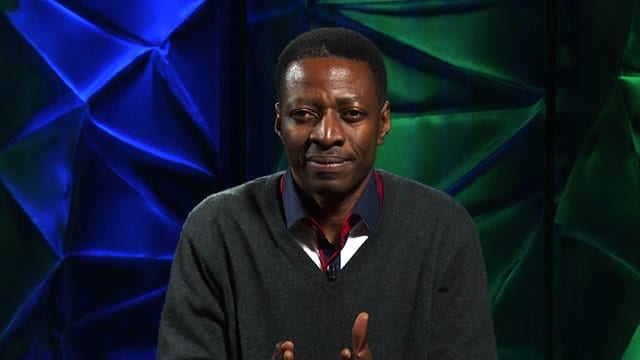
Do you know what to look for in young, emerging leaders? Pastor Sam Adeyemi shares what he specifically looks for when investing in younger leaders.

Do you know what to look for in young, emerging leaders? Pastor Sam Adeyemi shares what he specifically looks for when investing in younger leaders.
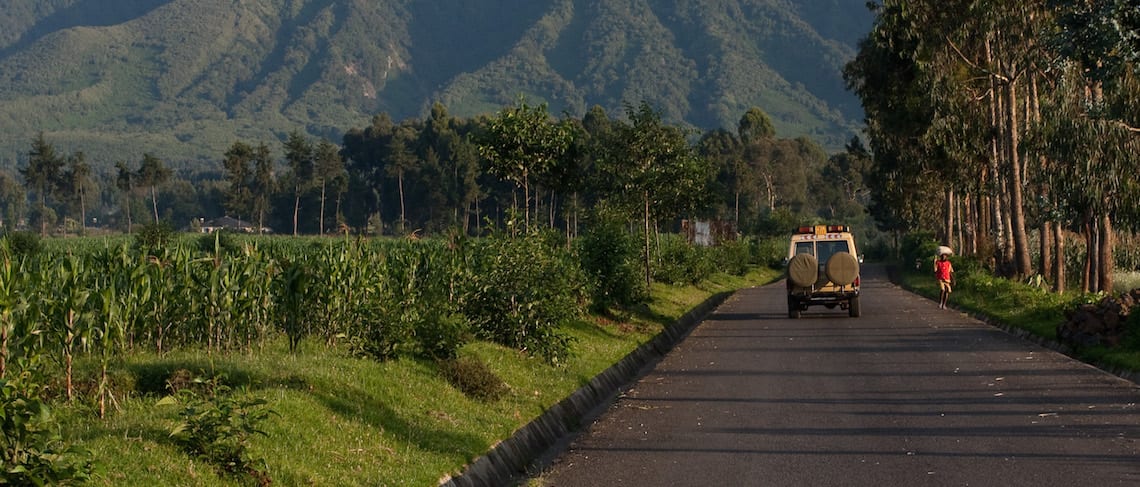
 My name is Andrew Mukinisha. I am the senior pastor at Christian Life Assembly, a church planted in 1999 in the heart of Kigali that now seeks to expand to other parts of the country.
My name is Andrew Mukinisha. I am the senior pastor at Christian Life Assembly, a church planted in 1999 in the heart of Kigali that now seeks to expand to other parts of the country.
As a pastor, my desire is to see young people trained and equipped, and leaders raised up for the next generation. Rwanda is a country that has suffered so much. The war and genocide cost us so many lives, among them, very good leaders. Currently, most of the leaders—whether in the political, religious, or business community—are predominantly young people. A lot of them need to be trained, mentored, and coached. We need to make sure, in the coming days, that Rwanda has very strong, godly leaders.
Everything rises and falls on leadership.
If we don’t have capable leaders, integral leaders, this nation is not going to go anywhere. But as we invest in leaders, and we make sure that more young people are trained, equipped, and mentored in a way that helps them to become servant leaders, we will make sure that the next generation succeeds.
At Christian Life Assembly, we partner together with others in the area of leadership development. We host leadership conferences annually and use it to develop our own congregation. We measure so much in leadership development, but we also partner with others in running inter-denominational kinds of leadership development conferences. More recently, the introduction of the Global Leadership Summit has become a wonderful addition to what has already been happening. I see it as a great opportunity for us to be able to reach out to even more leaders.
It’s my desire to join up together with other local church leaders and Christian organizational leaders and to mobilize more and more people to join in the Global Leadership Summit. With the experience of men and women of God that the Summit is able to bring together, it’s amazing. I think this is going to be a great asset in the area of leadership development in our own country. And we can use it in our entire region, not just in Rwanda, but also through the entire East African region. I don’t doubt that Rwanda is becoming a hub either in the business world, or politically. I believe that religiously, in terms of Christian movements, Rwanda is also becoming a hub. I think we can be a good hub for the Global Leadership Summit here in Kigali for the region.
– Andrew Mukinisha, Rwanda

Pastor Robert Gelinas has a Grander Vision for churches in Colorado: that churches would band together and care for orphans in their state. Now, Colorado is a state where families are waiting for children to adopt out of foster care.
Last fall, Robert spoke at the National Foster Care Initiative in Oklahoma City. The following are some of his remarks:
Pharoah’s Daughter went the Nile River to take a bath. I’ve always found that odd that she would take a bath in the Nile River. Of all the places she could have bathed, she chose that place. And what was so odd about it was that we know what her father did. It was her father who decided to have all the of the Hebrew baby boys thrown into the Nile River. So she decides to go down by the riverside. She decides to immerse herself in the mess.
She decides to be there, wondering, “Is there anything I can do? Is there something that my family could do? What if I could save some? What if I could save one?” And she found herself a part of God’s plan.
Those are the questions my wife and I were asking some 20 years ago when we got married – and shortly after that made the decision to build our family through adoption . . .
Watch the rest of his remarks in the seven-minute video above. To learn more about Robert and Project 1:27, go to http://project127.com/.

 Nancy Duarte, the owner of one of Silicon Valley’s pre-eminent presentations companies, leads her business according to a Grander Vision. She was convicted that she needed to forgive a debt owed by a struggling entrepreneur. That decision proved to be pivotal in cementing her belief that the company would be led according to godly values.
Nancy Duarte, the owner of one of Silicon Valley’s pre-eminent presentations companies, leads her business according to a Grander Vision. She was convicted that she needed to forgive a debt owed by a struggling entrepreneur. That decision proved to be pivotal in cementing her belief that the company would be led according to godly values.
Nancy has written three best-selling books on the topic of visual storytelling and presentations. She blogs on design, creativity and presentations here. Below is a recent post on the importance of vulnerability in storytelling.
Sharing a story about yourself makes you vulnerable. Since stories are about transformation, telling a personal story requires you reveal a flaw, error or a roadblock that was a difficult to overcome. Professionals are nervous to reveal their struggles at their place of work for fear it will open them up to judgment or criticism.
Many of the clients who come into my shop shy away from using personal stories to illustrate their points, even though it’s one of the most powerful tools a presenter can use. They’ll say things like, “I don’t want the presentation to be all about me,” “I don’t have any good stories,” or, “I can’t reveal too much about myself.” The truth is they just don’t want to be vulnerable. But it’s worth the risk. People are drawn to the transformative power of vulnerability because it’s rare to see influential people share something from their personal lives, especially something that they struggled with, but also because these stories draw people closer to you, and to your message.
It feels natural to tell stories around the dinner table with friends but somehow our ability to be vulnerable declines in professional settings. So, how do you successfully tell a transformational story about yourself? Use a simple three-act structure. First, you have to establish yourself as likeable so your listeners will root for you. Then, explain how you encountered a problem (at first you resisted, but eventually you accepted the challenge). Then, you conclude by making it self-evident how you changed or transformed in the process. (See the full Hero’s Journey.)
This may seem like a pretty easy formula to follow, but a lot of people have trouble with it. Not only is telling a good story a skill that some have spent a lifetime trying to perfect, but, again, telling a good story means that the main character (in this case, that’s you) must change somehow, which means there must be something worth changing. Translation: You have to be wrong, knocked down, or otherwise at a disadvantage. This isn’t a flattering light to start from, and many people end up cutting this part for fear of damaging their reputation. But it’s the low points of a story that make the high points seem so high, not only by themselves, but by comparison. And like seeing a movie that you know is based on a true story, there’s something even more powerful about hearing highs and the lows straight from the people themselves.
For example, take this TED Talk from ER physician Brian Goldman.
In this talk, Goldman makes the argument that doctors are human and that it’s only by admitting their mistakes that the medical profession will be able to build safeguards that will protect patients. To illustrate his point, Goldman does the unthinkable: He admits to two errors, one that ended up costing a woman her life and one that almost cost a young man his. It would have been very easy for Goldman make his point using stories that he’s overheard or studied. But would his story have been as powerful? Not even close. By telling the story the way he did, Goldman draws attention to his point, but also causes the audience to take a closer look at their own mistakes and the mistakes of others.
So, in your next presentation, when you’re tempted to skip over something that makes you uncomfortable or something that may not show you in the best light, think about why you’re avoiding it. Then, ask yourself, “Is there a message in what I learned that will make my presentation better? And am I brave enough to use it to my advantage?”
View the original post on her blog here.
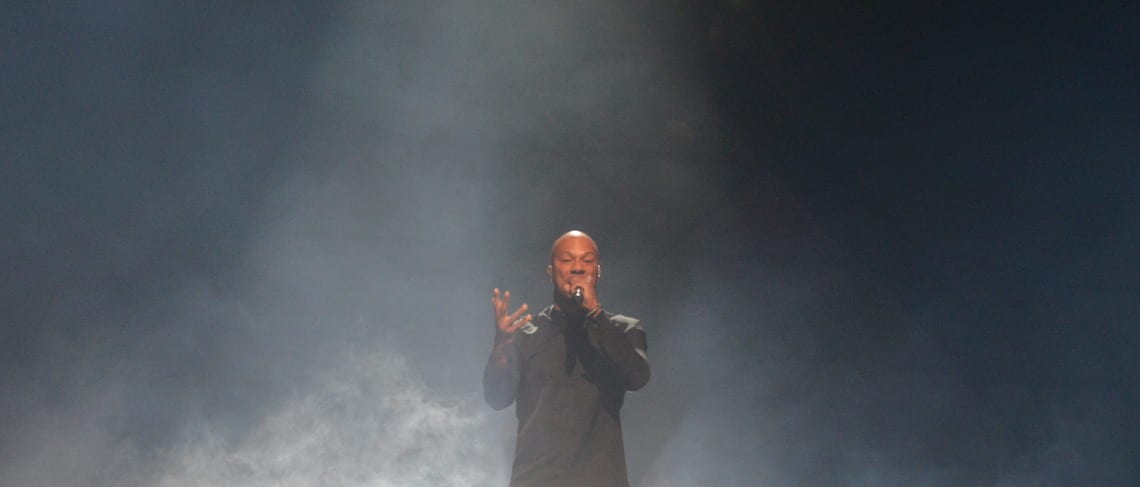
The Summit is thrilled to welcome the hip-hop artist Common to perform his song Glory in Session 7. Glory was the theme song for the 2014 film Selma, which portrayed the 1965 civil rights marches from Selma to Montgomery. Common also co-starred in the film as 1950s Civil Rights leader James Bevel. The song won the award for Best Original Song at the 87th Academy Awards (2015) and the 72nd Golden Globe Awards (2015).
Common talked about his inspiration for the song with Deadline|Hollywood here.
Sample lyrics of Common’s rap verse: The movement is a rhythm to us. Freedom is like a religion to us. Justice is a juxtaposition in us. Justice for all just ain’t specific enough. One son died, his spirit is revisitin’ us. Truant livin’, livin’ in us, resistance is us. That’s why Rosa sat on the bus. That’s why we walk through Ferguson with our hands up. When it go down we woman and man up. They say, “Stay down,” and we stand up. Shots, we on the ground, the camera panned up. King pointed to the mountain top and we ran up.
Selma is about the Dr. Martin Luther King Jr.-led march for voting rights between Selma and Montgomery, Ala., in 1965. In writing the song, though, Common and [John] Legend invoke current events, because they see the film as a mirror of what’s happening today. Is it a risk? They certainly could have chosen to play it safe, but went another direction.
“I think it is a little controversial to bring the now into the song because these are things that are being debated right now in this moment, but we have to also realize that Dr. King was controversial,” Legend told me in a recent phone conversation. “Dr. King was seen as a radical by a lot of people. Dr. King wasn’t extremely popular before he died, and so for us to talk about things that may not be popular with everybody, it is part of carrying on with his spirit. I always quote (jazz singer and civil rights activist) Nina Simone. She said, ‘It’s the artists’ duty to reflect the times they live in,’ and so with this song we wanted to pay tribute to the important roles that all the people play in Selma, but we also wanted to reflect the time that we live in.”
Common gives great credit to Legend’s chorus for inspiring his rap verses.
“I think when I heard what John was singing, I felt like this was a song that, in his chorus, was of the now even though it carried the tradition of the people back then who were fighting for freedom and standing up for human rights and civil rights,” Common said. “It had that spirit, but it also felt now. And I thought that Selma itself was really relevant because even though I hadn’t seen the film before we wrote the song, I still knew that I was reading about things, about voting rights that were being reversed recently and I was like, wow, this movie is becoming even more present. And with situations like when I saw what happened with Mike Brown and Eric Garner, it was like I knew what we had filmed and I felt this is of the now. It’s necessary to speak about it and show that, yes, we’ve come a long way but we have a long way to go. So with these situations we are still facing right now, we have to acknowledge them and do what we can to heal them and move forward.”
To read the rest of the article by Pete Hammond, click here.
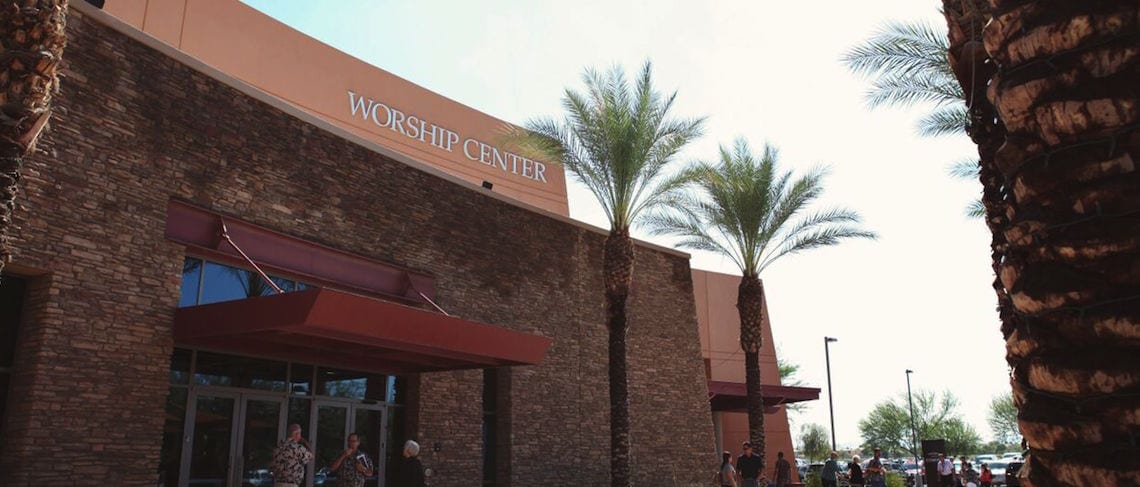
The Global Leadership Summit will be live via satellite in Mesa, Arizona at Central Christian Church on multiple campuses. Cal Jernigan is one of our long-term host site pastors and his church has embraced the vision of the Global Leadership Summit. He blogs on leadership and ministry here.

Can you imagine getting to spend two days with Christian leaders in your community as you learn from some of the sharpest people on leadership? Yet the critic might wonder, isn’t there a better use of our time? Not to mention the money and energy involved. Aren’t there more pressing concerns?
Let’s be honest, it’s more than just a little bit of a hassle, especially if you’re a host sight. It really is a bucket-load of work—what with getting folks registered, recruiting the volunteers to serve, getting the campus ready, etc. etc. etc.
Is the Leadership Summit really worth the bother?
Oh sure, if we didn’t attend the Leadership Summit we wouldn’t have heard Bill’s challenge to grasp and then tenaciously hold onto our “white-hot why”.
Nor would we have heard Jim Collins explain why people who focus on their careers tend to stagnate but those who focus on their unit thrive.
Nor would we have been inspired by Ed Catmull as he explained the concept of having a kind but candid “brain trust” that critiques our best efforts – just so we can get better!
But does that make it worth it?
Let me say this, and let me say it clearly… yes! Now let me say it again… and hear this emphatically…YES!!! It’s many times over worth it!
As I’ve thought about it, there are at least four incredible reasons the Summit is worth the substantial investment we make in it.
First, it’s a tremendous gift to the people of our church who attend. Outside of the Summit, where are we going to get this many people exposed to this kind of leadership training? The Summit provides world-class teaching from world class leaders. As the years have gone by, so much of the conversation that takes place within our church had its genesis in sessions from the Summit. It’s a great place to start conversations about how to lead better!
Second, I can’t help but think of the hundreds of people who give so much of themselves to serve the people who attend the Summit. These are the unsung heroes in our midst. Many take vacation time just to be able to serve. Because we host the Summit at multiple sites, each having over a thousand in attendance, our need for servant leaders is enormous. Without their selfless dedication to our guests, we simply couldn’t pull it off. They serve so others can learn. Does it get any more Christ-like?
Third, I think about what hosting the Summit provides for other churches in our community. Because we are willing to take on the lion share of the heavy lifting to make this available, it is our chance to serve the community at large. This includes both churches and businesses. Where else would we get this opportunity?
Last, I think about what the Summit has come to mean to me personally. As is often stated, it serves as a yearly infusion of life giving inspiration. There is nothing on my calendar I look forward to more. It truly has become a non-negotiable for me. You will always find me at the Summit…just like I’ve been for the last fifteen years. Yeah, I’m the deer longing for the cool drink from the stream of water—it can never get here quickly enough.
So is it worth it? Yeah…it’s worth it. It’s really worth it! And then it’s worth a whole lot more! Thank you Willow for the vision to share this experience with hundreds of thousands of leaders all around the planet. We are all better for it!
So now, in this very moment, I find myself contemplating how I’ll never think of “the little engine that could” in the same way again. What a great reminder of the need for grit.
I gotta’ go for now… Another session is starting and another round of insights are being served!
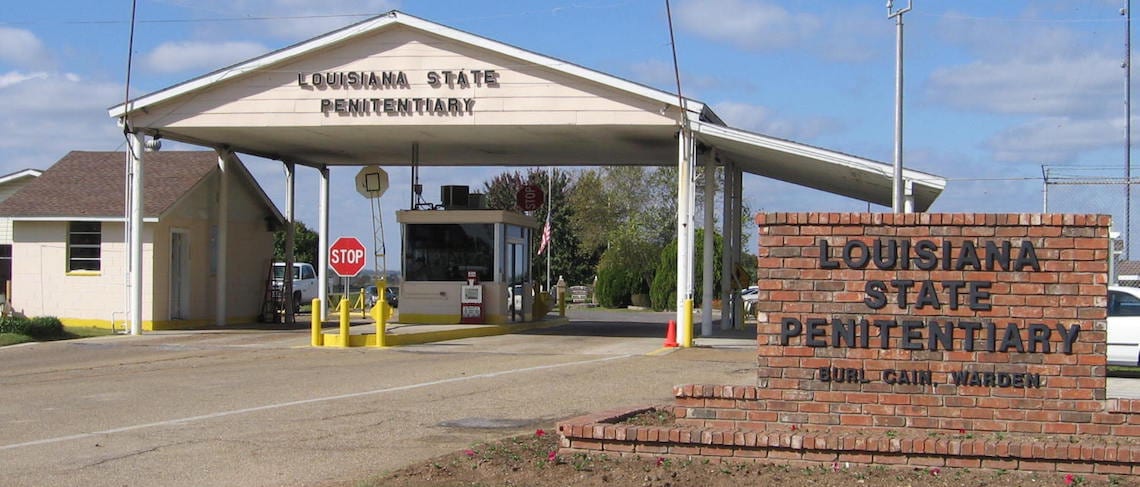
 Twenty years ago, Warden Burl Cain had a Grander Vision to make Angola Prison a place for moral rehabilitation. Through a local seminary, inmates receive training in ministry to become pastors within the prison. The changed lives of these prisoners stand as a testimony to what God can do through one person’s vision. Several years ago, The Acton Institute did an in-depth interview with Burl Cain. Here is a link to the full article.
Twenty years ago, Warden Burl Cain had a Grander Vision to make Angola Prison a place for moral rehabilitation. Through a local seminary, inmates receive training in ministry to become pastors within the prison. The changed lives of these prisoners stand as a testimony to what God can do through one person’s vision. Several years ago, The Acton Institute did an in-depth interview with Burl Cain. Here is a link to the full article.
Burl Cain is the longest serving warden of Louisiana State Penitentiary (Angola), a position he has held since 1995. He formerly worked as a warden at the Dixon Correctional Institute in Jackson, Louisiana. He is well known for his work at transforming prison culture and promoting moral rehabilitation. Warden Cain serves on the board of Prison Fellowship. He recently spoke with managing editor Ray Nothstine.
R&L: What do people outside of Angola need to know about the prison?
Warden Burl Cain: I think Angola proved a lot of things that even Scripture says that does not need proving, like II Chronicles 7:14, “If my people who are called by my name would turn their face to Me, I will heal their land.” And that’s what happened here, because this prison’s culture has changed, not because I’m a smart warden or because of the authority here. It changed solely because these inmates were praying to God to heal their land, and He did.
If you turn to a moral worldview, you’ll be okay. But if we turn away from our religious heritage and we keep separation of church and state to the point that is a wider gap than our forefathers intended, you’re going to keep having immoral acts and immoral things happen. The seminary program implemented by New Orleans Baptist Seminary has changed the prison culture.
There are 6,100 inmates here and more coming. This is a gigantic prison. Right now it’s only murder, rape, armed robbery and habitual felons. If your sentence is less than 50 years, we don’t keep you here. We’re going to change that in the future because these people have so changed, these lifers, who know they’re going to become teachers for the short termers, so that they can make it on the street and save tax dollars by not having to hire so many teachers in literacy and vocational skills and so forth. This place has become a place of encouragement.
You are a warden of a prison that has historically been known as one of the more violent prisons and you’ve seen that change under your watch. But how do you change the perception? And I imagine some of it has to do with talking to the media and getting your story with the Rodeo out, but how do you change that perception in terms of Angola’s reputation?
It’s amazing because I’ve been here almost 18 years, and we were all talking about it just yesterday. I’ve just about given up. I cannot change our reputation because it still makes people shudder, “Angola.” Life magazine called it the bloodiest prison in America. And we can’t shirk the reputation because the people who come here are so violent. People don’t realize how much they can change.
And that’s why we really built the Rodeo up and have so many tours in this riverboat tour. When they stop here in Baton Rouge or St. Francisville, they get in a bus and they come here, because I’m trying to get people to see that this place is not like they thought, and that people can truly change.
Learn how Warden Cain believes moral rehabilitation can change the prison system by reading the rest of this excellent interview. Click here.

The Global Leadership Summit is live via satellite at Green Bay Community Church (GBCC) in Wisconsin. Troy Murphy, pastor of GBCC and chaplain of the Green Bay Packers! GBCC has been hosting the Summit for five years – three years as a private view and now two years as a premier site. He blogs on leadership and ministry here.
I can remember it like it was yesterday. I was 10 years old when my father told me we were going to drive to the famous Hollywood Magic store later that week. I could not stop thinking about it. What was I going to see? What would I purchase? Who would I meet?
When was the last time you longed for something? You were filled with an energy of anticipation that you could not put out of your mind. Maybe it was a special trip to a place you always wanted to visit or a class with a professor that you could not wait to attend. Maybe it was a concert, a reunion or a sports event. That feeling of a growing eagerness and expectation to be in that space is what the bible calls longing.
Do you have a “longing to learn?” The bible speaks of this type of desire to learn from David himself.
I open my mouth and pant, longing for your commands. Psalm 119.131
Do you have that sense of anticipation to be changed from the leadership experiences of others? To hear from God through others?
Learning happens best when we can remove the resistors that we have in place. Resistors are those expectations and limitations that we place as guidelines for our learning. As I prepare my heart, mind and soul for the Global Leadership Summit experience this week I must consciously “let go” of these resistors.
I will let go of whom I can learn from: Open your mind to the possibility that you can learn from anybody. Have you ever experienced this? I have had hundreds of people with varying levels of faith and no faith that God has used to teach me something profound and transformational. Throughout history God has used the most unlikely people to empower others toward great change. Will you let go and allow him to teach you? At the 2013 GLS, Vijay Govindarajan‘s talk on innovation was my favorite session. I had no idea who he was or what his faith journey was but I could hear God speaking to me to break the box I had formed for what the bride of Christ could be.
I will let go of where and how I will learn: Be on the alert and surprised by where and how you will learn. Every moment and place that God has us provides the potential for insight and direction for our lives and leadership. Last year’s GLS produced one of the most unexpected transformational moments when members of the special needs ministry danced and sang. That moment grew my appreciation and desire for that ministry in our church and community. It reminded me that in the midst of leading a staff and church I cannot lose the compassion for those in need.
I will let go of what I am going to learn: Remove your agenda and to do list for what you’re going to learn. You might end up learning all that you came for, but be open for what God has for you to learn. I have found it more rewarding and transformational to come with a blank piece of paper and let God fill the page. Last year the Crucial Conversations session with Joseph Grenny not only surprised me but compelled our entire staff to relook at our call as followers of Jesus to speak truth in love and become peacemakers, not peacekeepers.
No matter who you are, where you’re from or what your faith journey is, we can all let go and embrace the hunger to learn and become better leaders in our lives. Last summer I had the opportunity to jump into a canoe in the Quetico for a week. No agenda, no guides, no schedules — just letting go and drinking in whatever was in front of us. May we as leaders all enter into the GLS as a great learning adventure.
Let go and learn.

The Global Leadership Summit will be live via satellite at First Baptist Church in Athens, Texas. Kyle Henderson, pastor of First Baptist Church, is one of our longest serving host site pastors. He also serves with the GLS international ministry throughout Africa. This post describes what his team is experiencing in Athens today. He blogs weekly here.
It’s been 354 days since the GLS has been in Athens, Texas and we can’t wait till the morning. All the meetings, all the planning, and all the phone calls have paid off with a great registration. Today is filled with lots of details of set-up, chair placement, name badge organization and snack displays.
It’s awesome to see so many volunteers caring about the tiny details that make the GLS an event happening in many locations. Our tech team has been fretting over the placement of triangles on the stage to make sure they match the ones on the main stage. We already had two meetings today discussing the perfect location of conference tables.
We shut it all down for 45 minutes and just prayed. We prayed for every seat, for every person attending, for the welcome and registration process. We prayed for the youth room, the snacks and the resources. We prayed bold prayers for the world-wide impact of the Summit. May God use this event to unify his Church.
We are not only expecting God to show up tomorrow, God welcomed us together today.
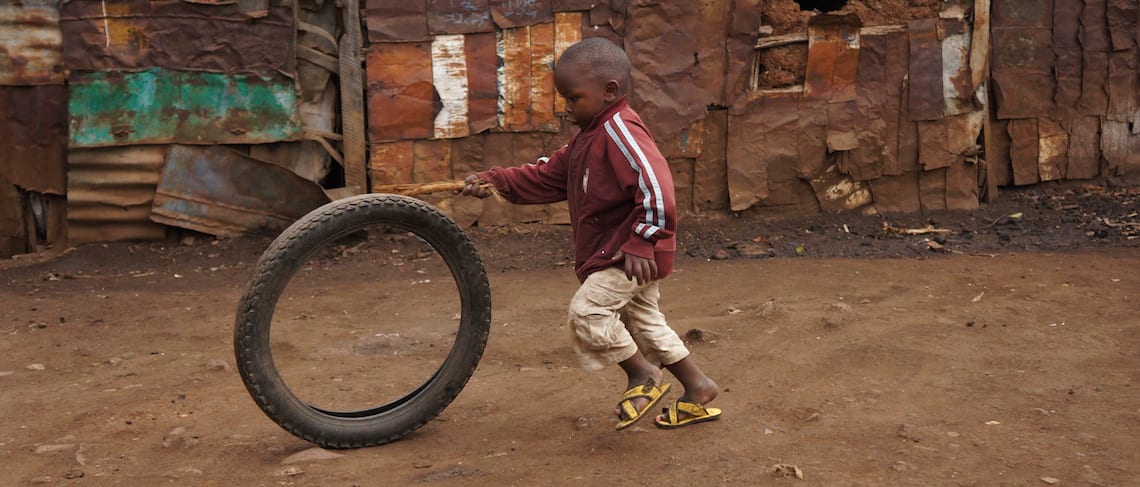
My name is Muragwa, and I’m the program manager and co-founder of the Root Foundation, which is a local non-profit here in Rwanda that helps street children go back to school, and helps them develop their talents, and what they love. My pastor introduced me to the Summit because he knew I was interested in leadership, and I attended for the first time last year. As a result, I can say that at the Root Foundation, we’ve really profited a lot.
When the co-founder and I started the Root Foundation, we were not really good at leadership. We didn’t know anything about how to organize a team or how to figure out where we wanted to take the foundation. We learned that leadership is different from management. We learned how to develop and stick with our vision. We also know now that we have to talk about crucial conversations as co-founders. We learned how to organize our thoughts and direct them to one vision.
Some months ago, my pastor and the team visited us about this particular topic of discussing crucial conversations as leaders. At the GLS, I learned I have to think about these crucial topics that could potentially pull my organization down. I will also never forget that it takes many single steps to take us to where we want to be. This is our third year of operation and we received our first amount of money this year, so we really understand what it means to take short steps.
We are Christians, and we know what it means to help street kids, but we also know that we need money to finance the foundation. As leaders, we have to share our vision with the team we work with, and also with the children we are trying to help. I know where we want to take the Root Foundation, but not everyone on my team always understands it the same way I do. So it’s important that we share our vision so everyone on the team understands and is ready to move forward together. This is a crucial part of the team, especially since most of the team consists of volunteers. I have received skills at the GLS that have helped me share the foundation’s vision.
I have learned how to treat people better. Some people on the team are extroverted, and some are introverted. Some people don’t like to share their feelings about what’s going on. When we first start working with people, we don’t always know their back story. Now we know how to handle situations in a wiser way. We have team parties and fellowship times, just to make sure we make time to share with each other and grow as a team.
The Root Foundation cares for 60 children who are going to school, which is different from the past three years. Our oldest student is in year five, and our youngest student is in primary grade two. The lessons learned from the GLS have helped me understand what I want to provide for them. I can help them become who they’re supposed to be, and it’s because I learned how to share the vision.
It’s obvious that we really need more advice, council, and more everything. I’m only 22 years old and I’m still a student; my co-founder is 28. We still need more of almost everything regarding training. We learned from the GLS that the short steps we make are the ones that take us to where we want to be regardless of how many steps there or are when we take them. We really understand that as Christians, because we know what faith means and we know what God’s timing means so we have that hope. We wait, not because we got it all, but because God can make it all happen. I hope with Christ, the support, the ideas, friends and family, sponsors, and partners, that we are on the right track and to go where we need to be. The Root Foundation is in the right place, and we are on our way to what we hope and dream. I wish to participate in every GLS from now on.
Muragwa, Rwanda
“We welcome and encourage comments on this site. There may be some instances where comments will need to be edited or removed, such as:
If you have any questions on the commenting policy, please let us know at heretoserve@globalleadership.org”
Recent Comments